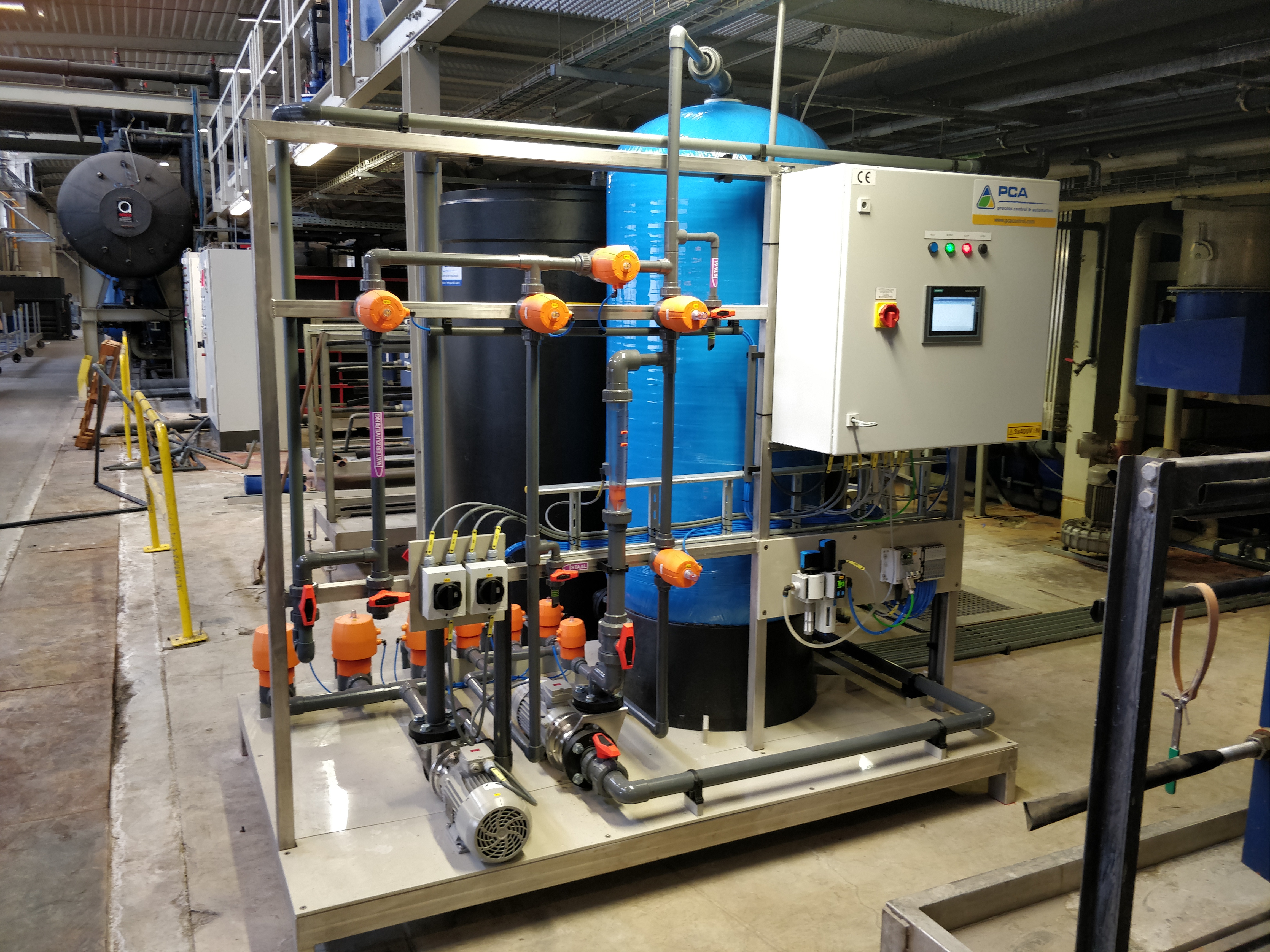Acid Recovery System
Acid recovery is regularly used in the field of surface treatment. In general, it can be applied to any acid bath that has to be drained regularly and in which there is a high concentration of acid. It is necessary that these are free and strong acids, otherwise the resin does not work very well.
The major advantage of this technology is the quality of the pickling bath, which will remain quite stable and allow more stable work. In addition, a lot of acid will be recovered, which means less acid needs to be purchased and less acid needs to be processed by the water purification system.
Acid recovery is a technique that is regularly used to separate acids from metal salts. By using specific ion exchange resins, the free acids are absorbed by the resin while the metal salts pass through the water treatment system.
After some time, the resins will be saturated (less acid is retained) and it will be necessary to regenerate the resins. Regeneration is simply done with demineralised water in counter flow. The acids on the resins will be released from the resins and will be captured by the demineralised water. The demineralised water with the acids flows back into the acid bath. After regeneration, acidic water is again pumped over the resin and the cycle starts again.
With this technique, two streams are obtained:
- An acidic stream, with a low concentration of metal salts. This flow then returns to the process bath.
- A stream with a high concentration of metal salts, but a low concentration of acid. This flow is usually used in water purification.
Acid recovery is often used for the recovery of:
- Sulphuric acid in anodising aluminium
- Pickling or polishing of copper or brass (with sulphuric or nitric acid)
- HF / HNO3 mixed acid for stainless steel
- Sulphuric acid or hydrochloric acid for pickling ordinary steel
- Phosphoric acid or sulphuric acid for electro-polishing
- Electrolyte solutions for hard chrome or nickel plating
Mostly they are stand-alone units built on a skid with their own PLC and controls.
In the past, PCA has already built several of these installations and we therefore have the necessary experience.
Please contact uf if you are interested.

